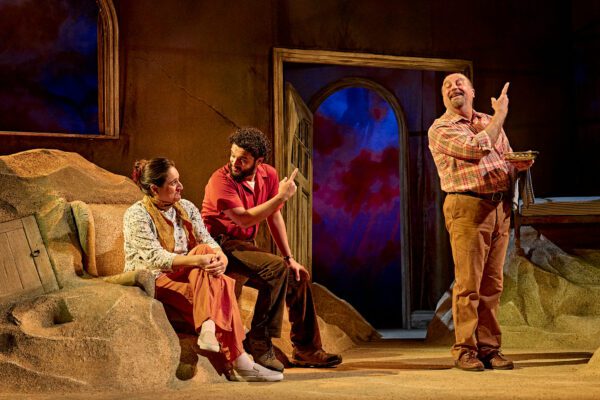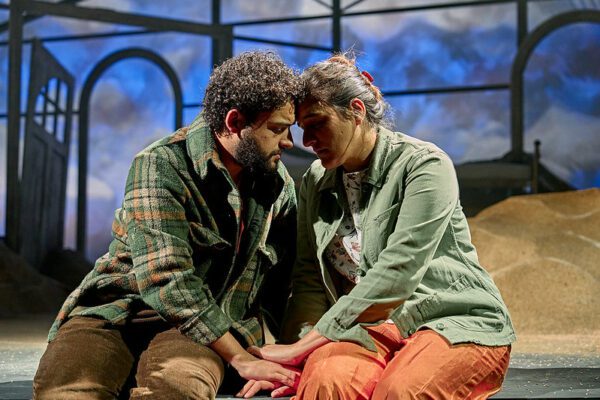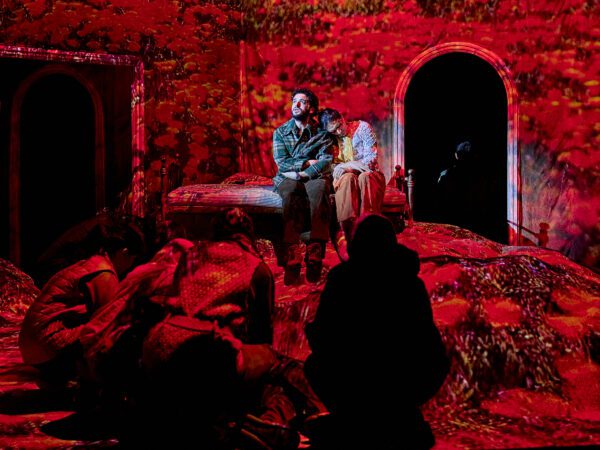Review: The Beekeeper of Aleppo
By aayushchadha

At a time when the news features impersonal arguments about the government’s Rwanda policy, cold statistics report civilian casualties of the war in Ukraine and dispassionately cover the extent of human rights violation under authoritarian regimes, a play like The Beekeeper of Aleppo (based on the book of the same name by Christy Lefteri) serves as a timely reminder of the very human toll of strife and violence and the indomitable human spirit that strives to find hope even in the darkest of times.
On those grounds, The Beekeper of Aleppo is a valiant effort. It tries to portray the lives of its protagonists, Nuri and Afra, as they go from being a small family in the world’s oldest, continuously inhabited city, full of its distinct sights, smells and memories, to refugees fleeing war, having lost not only their possessions, home, loved ones but also a significant part of themselves.

However, despite its best intentions, it falls prey to a trope that has claimed several others — cramming in as much of the book (which I read right after watching this) as possible. While the desire to do that is understandable, given the limited duration of a stage performance and the competing sensory stimuli from the incredible sound, stage and light design, the overall effect severely undermines the noble goals of the playwrights (as stated in the program) in putting this production before us.
Between reading the programme, the book and listening to the dialogues, it is hard to deny that more than the individuals, Afra and Nusri (played by Roxy Faridany and Alfred Clay respectively), the element that propels the story forward is the relation between them and how it is affected by the war and their journey to the UK.

However, for that relationship to be believable, it must be nurtured, and that could have been better done had the scenes consisting of the two of them before the war showed more of their sensitivity towards each other than merely telling the audience about it and whizzing past these moments in order to get to other parts of the story.
Likewise, it would have also drawn the audience in closer if there were more scenes showing how they adored their son, Sami, and all the memories they made with him before the war took him away from them.
In the absence of these elements and the consequent emotional investment of the audience, the humour (mostly taken verbatim from the book) comes as nothing more than a distraction. In the presence of a more believable relationship that had to endure a constant onslaught of harrowing experiences, the humour would have testified well to the strength of the human spirit.

None of this is to say that the play slacks throughout. Elaha Soroor’s compositions along with Tingying Dong’s sound design do a fantastic job of stirring emotions otherwise missing from the script. Some of the most moving moments of the play were the rapid transitions between Nuri’s lived experience and the peek into his psyche and memory-scapes. In brief but incredibly welcome moments, the best elements of the play worked in unison.
Likewise, Ruby Pugh’s design, complemented by Ben Ormerod’s Lighting and Ravi Deepres’ Filmography, derive an incredible amount of mileage from a sparsely populated but cleverly utilised stage.
The question, however, comes back to whether as a reviewer, I would recommend giving it a watch. Unfortunately, I wouldn’t, especially when you could read the book, or if you were short on time, watch far more compelling accounts of the Syrian refugee crises that haunt our collective memories (For Sama, The Swimmers immediately springs to mind).
And if you only have five minutes to spare, Missy Higgins’ Oh Canada captures a lot more emotion than any comparable 5-minute segment in this play.
The Beekeeper of Aleppo runs at The Lowry (Lyric Theatre) until April 22 and tours the UK until July 1.







